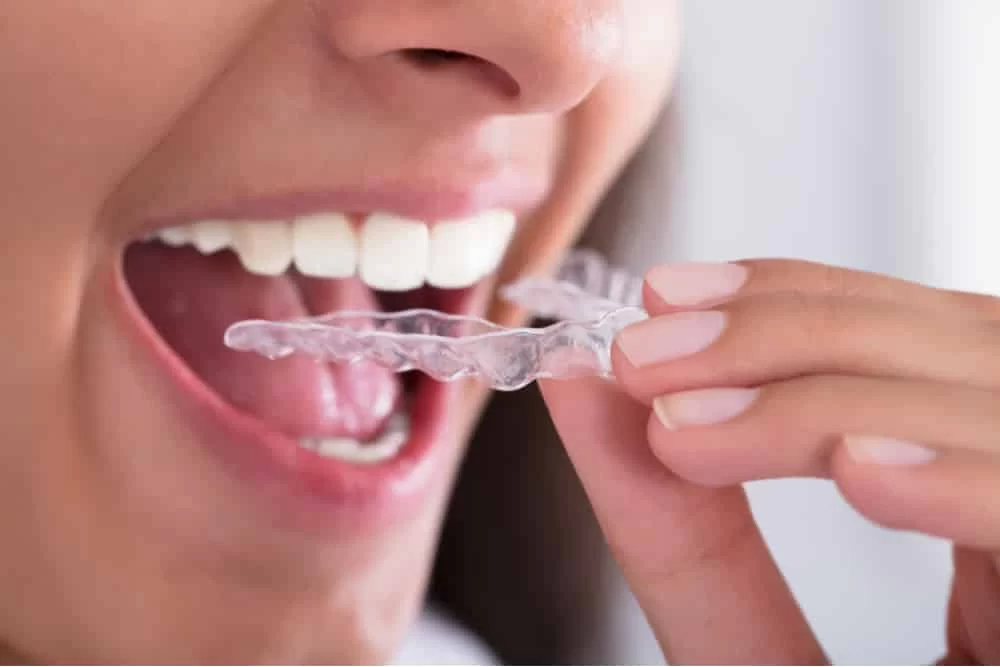
Causes and Treatments for Sensitive Teeth: Effective Solutions for Tooth Sensitivity
- 1. What Causes Sensitive Teeth?
- 2. Common Triggers of Tooth Sensitivity
- 3. Effective Treatments for Sensitive Teeth
- 4. Home Remedies for Tooth Sensitivity
- 5. Preventing Tooth Sensitivity: Long-Term Solutions
Having sensitive teeth can make eating or drinking some of your favorite foods a painful experience. If you’ve ever winced while sipping a cold drink or felt sharp discomfort when brushing your teeth, you might be dealing with tooth sensitivity. Understanding the causes and treatments for sensitive teeth is crucial to managing the discomfort and preventing long-term damage to your teeth.
In this article, I will walk you through the common causes of sensitive teeth, effective treatments to ease the pain, and practical steps you can take to prevent and manage sensitivity in the future. Whether you're experiencing occasional discomfort or more frequent sensitivity, knowing how to treat it can make all the difference in your oral health.
2. What Causes Sensitive Teeth?
Tooth sensitivity typically occurs when the underlying layer of the tooth, called the dentin, becomes exposed. Dentin is usually protected by tooth enamel, but when enamel wears down or gums recede, the dentin becomes vulnerable to stimuli like hot, cold, or sweet foods and drinks. This leads to the sharp pain or discomfort associated with tooth sensitivity.
Common causes of sensitive teeth include:
2.1 Enamel Erosion
Enamel is the hard, protective outer layer of your teeth. Over time, it can wear away due to excessive brushing, acidic foods, or aging. Once enamel is damaged, the dentin beneath is exposed, making teeth more sensitive to external stimuli.
2.2 Gum Recession
As gums recede, they expose the roots of the teeth, which are not covered by enamel. This can result in increased tooth sensitivity, especially around the gum line. Gum recession can be caused by factors like gum disease, aggressive brushing, or genetics.
2.3 Tooth Decay and Cavities
Cavities or untreated tooth decay can lead to the exposure of the dentin, causing sensitivity. If you notice sensitivity along with visible decay, it’s important to visit your dentist for an evaluation and treatment.
2.4 Dental Procedures
Certain dental treatments, such as tooth whitening, fillings, or gum surgeries, may cause temporary tooth sensitivity. This sensitivity usually subsides once your teeth recover from the procedure.
3. Effective Treatments for Sensitive Teeth
If you’re dealing with sensitive teeth, there are several effective treatments that can help alleviate the discomfort and protect your teeth from further damage. Let’s explore some of the most common and effective treatments for sensitive teeth:
3.1 Desensitizing Toothpaste
One of the simplest and most accessible treatments for sensitive teeth is using a desensitizing toothpaste. These toothpastes contain compounds that block the pathways leading to the nerves in your teeth, providing relief from sensitivity. With regular use, desensitizing toothpaste can help protect your teeth from painful stimuli and reduce sensitivity over time.
3.2 Fluoride Treatments
Fluoride treatments can help strengthen tooth enamel and reduce sensitivity. Your dentist may apply fluoride gel or varnish to your teeth to protect and remineralize the enamel. Fluoride can also help reduce discomfort caused by exposed dentin.
3.3 Dental Sealants
If your tooth sensitivity is due to enamel erosion, your dentist may recommend dental sealants. These thin coatings are applied to the surface of your teeth to provide extra protection against temperature changes and acidic foods.
3.4 Gum Grafting
For patients with gum recession, a gum grafting procedure can help restore the gum line and protect the exposed roots of the teeth. This can significantly reduce sensitivity in areas where the gums have receded.
4. Home Remedies for Tooth Sensitivity
While professional dental treatments are the most effective solution, there are also some home remedies that can help alleviate tooth sensitivity. These remedies can provide temporary relief and can be easily incorporated into your daily oral care routine:
4.1 Salt Water Rinse
A salt water rinse can help reduce inflammation and bacteria in the mouth, providing temporary relief from tooth sensitivity. Simply dissolve a teaspoon of salt in warm water and swish it around your mouth for 30 seconds.
4.1 Clove Oil
Clove oil has natural numbing properties and can be applied directly to sensitive teeth to reduce discomfort. Apply a small amount of clove oil to a cotton ball and gently rub it on the affected area for instant relief.
4.2 Avoid Acidic and Hot Foods
Avoiding hot, cold, or acidic foods and beverages can prevent aggravating tooth sensitivity. Foods like citrus, soda, and spicy dishes can trigger pain, so try to limit them while you’re experiencing sensitivity.
5. Preventing Tooth Sensitivity: Long-Term Solutions
In addition to treating existing sensitivity, it’s important to adopt preventive measures to reduce the risk of developing tooth sensitivity in the future. Here are some tips to help you maintain healthy teeth and avoid discomfort:
5.1 Use a Soft-Bristled Toothbrush
Brushing your teeth with a soft-bristled toothbrush can prevent enamel erosion and gum recession, both of which contribute to tooth sensitivity. Gentle brushing helps maintain the integrity of your enamel without causing unnecessary wear.
5.2 Practice Good Oral Hygiene
Maintaining good oral hygiene by brushing and flossing regularly is essential for preventing tooth decay and gum disease. Plaque buildup can lead to cavities and gum recession, which are common causes of tooth sensitivity.
5.3 Avoid Grinding Your Teeth
If you grind your teeth, especially at night, this can contribute to enamel wear and increase sensitivity. Talk to your dentist about wearing a mouthguard to protect your teeth from grinding and prevent further damage.
6. Additional Tips for Managing Sensitive Teeth
If you’re struggling with sensitive teeth, there are additional steps you can take to minimize discomfort and keep your teeth healthy:
6.1 Visit Your Dentist Regularly
Regular dental visits are key to addressing tooth sensitivity. Your dentist can identify the underlying causes of sensitivity and recommend appropriate treatments to protect your teeth.
6.2 Consider Dental Products for Sensitivity
If tooth sensitivity is a recurring issue for you, consider using specialized dental products designed for sensitive teeth, such as fluoride mouth rinses or toothpaste formulated for enamel protection. These can help manage the sensitivity and protect your teeth from further damage.
If you’re looking for more advice or products to help manage tooth sensitivity, visit Dentistry Toothtruth for expert recommendations and solutions tailored to your needs.







 Bright Valley Dental4.0 (97 review)
Bright Valley Dental4.0 (97 review) Saxon Dentistry: Chris Saxon DDS5.0 (246 review)
Saxon Dentistry: Chris Saxon DDS5.0 (246 review) Adventure Dental4.0 (11 review)
Adventure Dental4.0 (11 review) TMJ and Sleep Therapy Centre of Chicago, LLC3.0 (17 review)
TMJ and Sleep Therapy Centre of Chicago, LLC3.0 (17 review) Andover Family Dentistry4.0 (57 review)
Andover Family Dentistry4.0 (57 review) Dental Solutions of Roxborough4.0 (219 review)
Dental Solutions of Roxborough4.0 (219 review) The Importance of Oral Health Education During Pregnancy for a Healthy Pregnancy
The Importance of Oral Health Education During Pregnancy for a Healthy Pregnancy Best Tips for Brushing Your Teeth Properly for Healthy Gums: Essential Techniques for Oral Health
Best Tips for Brushing Your Teeth Properly for Healthy Gums: Essential Techniques for Oral Health Why Skipping Dental Checkups Can Lead to Bigger Oral Health Problems
Why Skipping Dental Checkups Can Lead to Bigger Oral Health Problems Advantages of Porcelain Dental Restorations
Advantages of Porcelain Dental Restorations How Can Diabetes Cause Tooth and Gum Problems? Preventing and Managing Oral Health Issues
How Can Diabetes Cause Tooth and Gum Problems? Preventing and Managing Oral Health Issues Healthy Habits for Promoting Good Oral Health and Hygiene: Tips for a Healthy Smile
Healthy Habits for Promoting Good Oral Health and Hygiene: Tips for a Healthy Smile